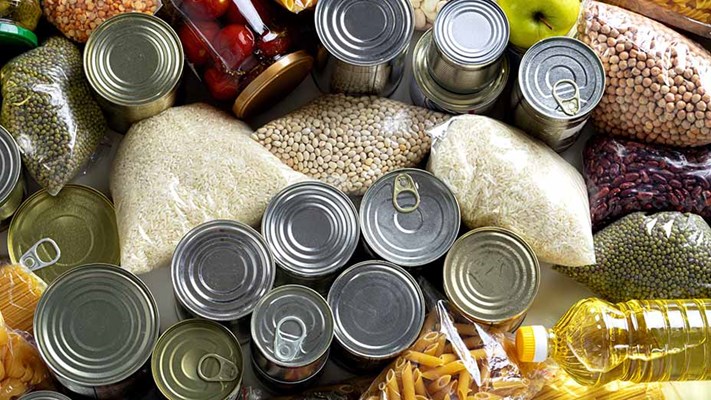Consistent Collections
Understand the obligations on local authorities, as well as business and other non-household municipal premises, for collections of recyclable waste for each of the four nations of the UK.
Collection Consistency is one of the three policies, alongside Extended Producer Responsibility (EPR) and the Deposit Return Scheme (DRS), collectively known as the ‘Collection and Packaging Reforms’. Collection Consistency is being pursued separately in each of the four UK nations.
What does Collection consistency involve?
- Collection of a nationally agreed set of packaging materials for recycling from households, businesses, and other non-domestic settings.
- Adoption of minimum service standards.
- Delivery of good quality recyclate.
By reducing confusion for consumers and increasing the range of materials and formats collected, collection consistency is expected to improve the supply of recyclates in terms of both quantity and quality.
In turn, this should help producers meet their recycling obligations under the packaging EPR system and create a circular economy where more packaging is recycled, and able to be turned back into food-grade packaging.
The scope of collection consistency also extends to the collection of food and garden waste.
By ensuring the same core set of materials are collected across all local authorities (LAs), collection consistency will also be crucial to supporting any future UK-wide mandatoryabelling system under packaging EPR.
Given the interdependency between collection consistency and EPR it is important that policies are aligned across the four UK nations in terms of materials in scope, format and implementation timeframes.
In October 2023, and following two previous consultations, the then UK Government announced new requirements for consistency of collections of recyclable materials from households and workplaces in England under the branding ‘Simpler Recycling’ (SR). Workplaces includes all businesses, charities and public sector organisations that generate waste that is similar in nature and composition to household waste (household-like waste). The aim is to ensure that all LAs and other waste collectors across England collect the same set of recyclable waste from households and workplace premises.
The new rules require dry recyclable waste, food waste and non-recyclable waste to be collected separately. The materials to be included in the dry recyclable stream are as follows:
- Glass, including bottles and jars.
- Metal, including aluminium and steel tins, cans, jars, bottle lids, aerosols and aluminium trays, foils and tubes.
- All Paper and Card, including fibre-based composites where the non-paper fibre content is no more than 15%.
- Plastic, including bottles, pots, tubs, and trays made of PET, PE and PP, tubes, cartons and films/carrier bags made of mono PP, PE and mixed PP/PE
Schedule 1 of the Separation of Waste (England) Regulations 2024 contains a fuller listing of the materials that need to be collected.
Whilst the dry recyclable materials can be co-collected, paper and card must be collected separately unless the waste collector doesn’t require this and has completed an assessment to demonstrate that this is either not technically or economically practicable or has no significant environmental benefit. These collection requirements are given legal effect through The Separation of Waste (England) Regulations 2025. NB These Regulations also allow for food and garden waste to be co collected.
All workplaces have a legal duty to present their wastes separately in accordance with the collection requirements made with their waste collector. Similarly waste collectors have a legal duty to collect dry recyclable materials (and food waste) separately from non-recyclable waste from both workplaces and households.
Implementation deadlines for Simpler Recycling:
- Since 31 March 2025:
Businesses and other non-domestic premises producing relevant waste required to arrange for the separate collection of dry recyclables (except plastic films) and food waste. Micro-firms (<10 employees) are exempt from these requirements until 31 March 2027.
- By 31 March 2026:
Local authorities required to collect dry recyclables (except plastic films) and food waste from households.
- By 31 March 2027:
Dry recyclables including plastic films and flexibles along with food waste required to be collected separately from all household and workplaces including micro-firms.
In order to achieve their statutory recycling targets, the Welsh Government (WG) provides guidance to LAs on how to configure household waste collection systems in the form of the Welsh Governments Collections Blueprint which was last updated in June 2025. The current (2024/25) statutory waste recycling target for LAs in Wales is 70%.
The WG directly supports LAs, investing £1bn towards recycling and guidance. Any LA is at risk of financial penalties if it does not reach its recycling target.
The WG also provides technical support to LAs through WRAP Cymru; it also administers a separate fund for LAs to bid into and to help develop regional infrastructure.
Since April 2024, The Waste Separation Requirements (Wales) Regulations 2023 have required all non-domestic premises in Wales to present and have collected separately the follow six waste steams:
- Food (for premises that produce more than 5kg of food waste a week)
- Paper & Card
- Glass
- Metal, Plastic & fibre-based composites
- Uncold small WEEE
- Unsold textiles
These regulations significantly expand Wales’ collection consistency framework to include workplaces and making it illegal to send these items to landfill or incineration. This aligns with broader goals to improve recyclate quality and support national sustainability targets.
In March 2024, the Department of Agriculture, Environment, and Rural Affairs (DAERA) launched proposals for the consistent collection of dry recyclables from domestic and business premises as part of the consultation ‘Rethinking Our Resources: Measures for Climate Action and a Circular Economy in NI’.
The overall aim is to bring forward new policy options linked to climate action and the circular economy. .
The proposals would require councils in N Ireland to collect a core set of dry recyclable materials within two years of notification of a statutory requirement including:
- Paper and card, including newspaper, cardboard packaging, writing paper;
Glass bottles and jars, including drink bottles, condiment bottles, jars and their metal lids; - Metal packaging, including aluminium cans, foil and aerosols, and steel cans, aerosols and aluminium tubes;
- Plastic: bottles, including drinks bottles, detergent/shampoo/cleaning products, pots, tubs and trays and cartons.
It is also proposed to include flexible plastic packaging in the core set by 31 March 2027, though this remains subject to final confirmation and legislative implementation.
The default collection method will be as four separate streams (paper/card, glass, metal and plastic), with councils required to undertake a QualiTEE (Technical, Economic, Environmental) assessment if they wish to undertake co-collection.
In 2015 the Scottish Government (SG) and the Convention of Scottish Local Authorities (CoSLA) agreed on a voluntary Household Recycling Charter to bring consistency to recycling services.
The Circular Economy (Scotland) Act 2024 requires ministers to prepare and publish a statutory code of practice for household waste recycling for local authorities. Building on the current Charter, this will set standards for recycling and reuse services across Scotland, and the power to introduce household waste recycling targets for local authorities from 2030.
In early 2025 the SG initiated a formal co-design process, working in partnership with local government, businesses, waste processors and other stakeholders to develop a new statutory Code of Practice for household waste recycling standards applicable to local authorities. Procurement for external facilitation and baseline cost-benefit analysis began in June 2025 to support the evidence-based development of a new Code. This collaborative process will shape the service standards and operational requirements for consistent household recycling collections across Scotland, with geographical and logistical factors intended to be taken into accounted.
The SG aims to publish the Code of Practice in 2026. The SG anticipates the dry recyclable materials required to be collected under the Code will be consistent within Scotland subject to any deviations due to geographical challenges; however, these materials may not necessarily be consistent with the other UK Nations.
Aspects such as the default collection method, and whether a collection frequency will be specified within the upcoming Code of Practice, will be subject to consultation.
Key document & Links
Simpler Recycling in England: policy update
Welsh Governments Collections Blueprint 2025
The Waste Separation Requirements (Wales) Regulations 2023
‘Rethinking Our Resources: Measures for Climate Action and a Circular Economy in NI’



